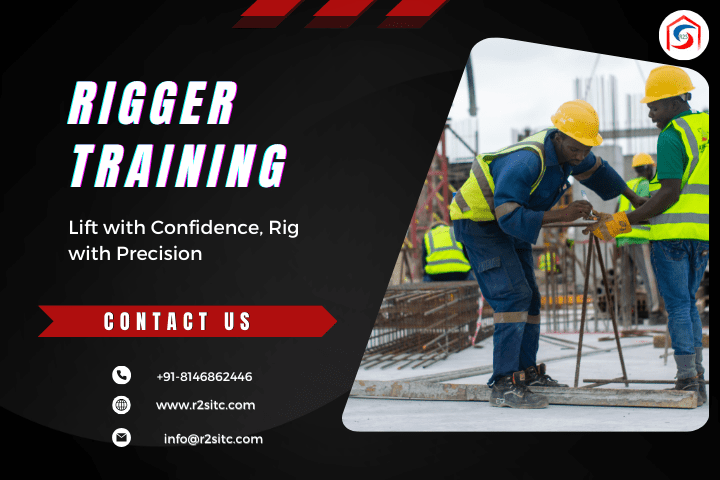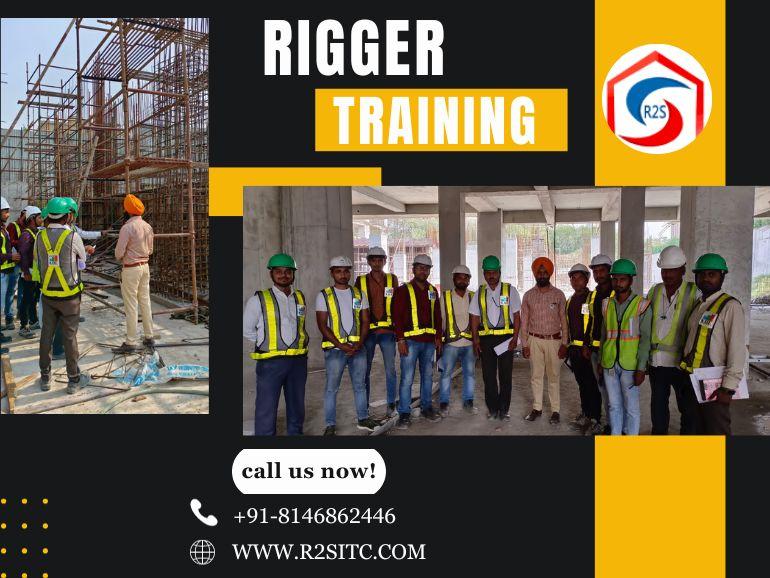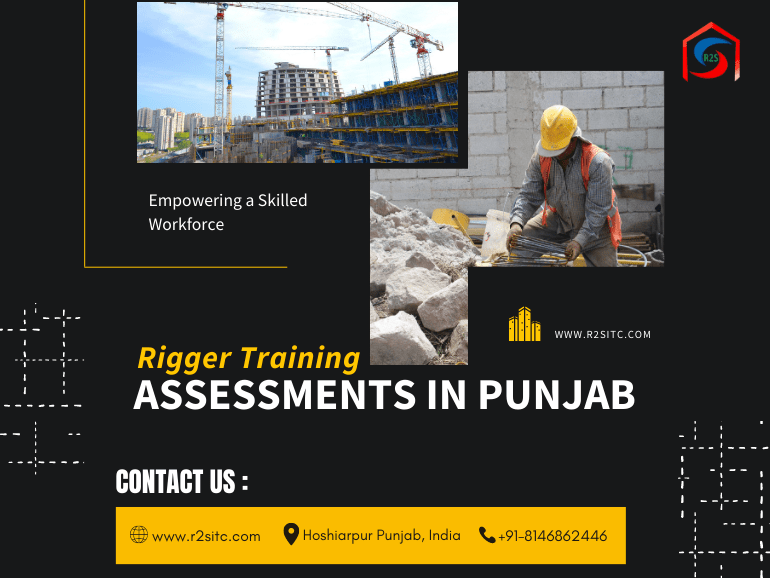Securing Heights: Rigger Safety Protocols Unveiled – A Deep Dive into Industry Standards and Best Practices
In the dynamic world of construction and heavy lifting, ensuring the safety of personnel and materials is paramount.Riggers play a critical role in coordinating these complex operations, which is why rigger training and adherence to safety protocols are critical.This comprehensive guide details industry standards and best practices governing excavator safety.From understanding the nuances of device usage to mastering communication protocols, we explore every aspect that contributes to a safer working environment.
Introduction:
The construction industry is made up of a complex web of moving parts, and at the center of that web are fitters, the professionals responsible for safely lifting and moving heavy objects. As a critical cog in construction equipment, assemblers must adhere to strict safety protocols to reduce risk and protect both human life and valuable assets.
Importance of Rigger Safety : Saving Lives and Improving Operations
In the complex world of construction and heavy-lift transportation, where towering cranes and heavy-duty machinery perform complex operations, the role of the rigger is essential.Rigging professionals are responsible for carefully planning and executing lifting operations to ensure the safe transportation of heavy objects.The importance of excavator safety cannot be overstated, as it not only saves lives, but also contributes to the efficiency and success of construction projects.
1. Risk Reduction and Accident Prevention:
One of the main reasons why installer safety is of paramount importance is because lifting operations are inherently dangerous. When handling heavy loads or powerful equipment, the risk of accidents, injury, and property damage is high. Strict safety protocols followed by well-trained installers serve as a strong protection against these risks. By identifying and addressing potential hazards before they escalate, rigger safety measures serve as a proactive approach to accident prevention.
2.Ensuring Regulatory Compliance:
The construction industry is subject to strict regulations and standards set by organizations such as OSHA and ANSI.Compliance with these regulations is not only a legal obligation, but also a moral obligation.Rigger safety training ensures that professionals fully understand these standards. This creates a work environment that is compliant with industry regulations and promotes a culture of compliance.
3. Protection of life and welfare:
The most valuable asset in the workplace is human resources. Rigger safety is essentially about protecting the lives and health of those involved in lifting operations.Bid rigging accidents can have serious consequences, ranging from minor injuries to death. Through comprehensive safety training, Ricker acquires the knowledge and skills necessary to prioritize his own safety and that of his colleagues, creating an environment where each person returns home safely at the end of the day.
4.Property and Equipment Protection:
In addition to personnel safety, rigger safety measures also play an important role in protecting valuable property and equipment. Improper handling of loads or failure to follow proper procedures can result in damage to equipment, structure, and materials. Excavator safety protocols are designed to minimize the risk of accidents that can result in significant financial losses on construction projects.
5.Improved Work Efficiency:
Well-trained and safety-conscious installers contribute to the overall efficiency of construction operations. Adhering to safety protocols reduces the potential for downtime due to accidents, investigations, or equipment failure. An efficient and safe working environment ensures that projects run smoothly and meet deadlines and budget without compromising safety standards.
Best Practices for Rigger Safety
Certainly, let’s delve into best practices for ensuring rigger safety throughout the entire rigging process:
1. Pre-Job Assessment and Planning:
– Job Hazard Analysis (JHA): Conduct a thorough JHA before starting any rigging operation. Identify potential hazards, assess risks, and develop control measures to mitigate these risks.
– Site Inspection: Inspect the work site to identify any obstacles, uneven ground, or other environmental factors that may impact the rigging operation. Ensure that the area is suitable for the planned activities.
– Communication: Establish clear communication channels among all team members. Ensure everyone understands their roles and responsibilities. Conduct pre-job safety meetings to discuss potential hazards and safety procedures.
2. Equipment Inspection and Selection:
– Regular Inspections: Inspect all rigging equipment before each use, checking for wear, damage, or defects. This includes slings, shackles, hooks, and other hardware.
– Proper Load Calculation : Determine the weight and center of gravity of the load to ensure the selection of appropriate rigging equipment. Consult load charts and follow manufacturer recommendations.
– Equipment Compatibility: Ensure compatibility between different components of the rigging system. Components should be rated for the load and compatible with each other.
3. Proper Rigging Techniques:
– Load Control: Maintain control of the load at all times. Avoid sudden movements or changes in direction. Use taglines to control loads during lifting or movement.
– Proper Sling Angles: Rig loads in a way that minimizes the angle between the sling and the load. Avoid sharp angles that can reduce the sling’s capacity.
– Balancing the Load: Ensure that the load is balanced to prevent uneven stress on rigging components. Use spreader bars or other appropriate devices when necessary.
4. Effective Communication:
– Clear Signals: Establish a standardized system of signals for crane and rigging operations. Ensure that all team members understand and use these signals consistently.
– Two-Way Communication: Maintain continuous and clear communication between the crane operator, signal person, and other team members. Use radios or other reliable communication devices.
5. Training and Competency:
– Ongoing Training: Provide regular training for riggers on updated standards, best practices, and new equipment. Ensure that all team members are aware of the latest safety guidelines.
– Certification: Ensure that riggers are properly trained and certified for their specific roles and tasks. Regularly assess and update certifications as needed.
Continuous Improvement and Training
Continuously improving rigger training is an important aspect of promoting a good safety culture in the construction industry.Keeping pace with industry advances and adopting new technologies is an integral part of this process. Let’s take a look at how these principles contribute to the continuous improvement of rigger training:
1.Regular training updates:
– Alignment with standards: Safety standards and Regulations evolve over time. Regular updates and refresher courses ensure riggers are up to date with the latest industry standards, guidelines and best practices.
– Changes in equipment: As technology advances, new equipment and technologies may emerge. Training programs should cover the use and maintenance of these new tools to improve efficiency and safety.
2.Technology Integration:
– Simulation and Virtual Reality (VR): By integrating simulation and VR technology into training programs, riggers can simulate real-world scenarios in a controlled environment.This hands-on experience improves your skills and decision-making abilities.
– Digital Learning Platform: Use digital platforms for your training modules to give learners easy access to the material. Online courses, webinars, and interactive modules provide flexible learning opportunities.
3. Case Studies and Lessons Learned:
– Incident Analysis: Continuous improvement includes analysis of past incidents and near misses. Incorporate the lessons learned from these experiences into your training program to emphasize the consequences of deviating from safety protocols.
– Real World Scenario: Case studies similar to those mentioned above can be used as valuable teaching tools. Examining real-world situations highlights the importance of following safety protocols.
4.Periodic Competency Evaluation:
– Skill Verification: Conduct periodic evaluations to verify rigger’s competency.This may include practical assessments, written exams, or a combination of both to ensure the rigger has the necessary skills and knowledge.
– Personal Development Plan: Identifies areas where individual rigger needs additional training or improvement. Create a personalized development plan to address your specific needs and improve your overall capabilities.
5.Communication Training:
– Advanced Communication Techniques: As technology advances, so do our communication tools. Training programs should include the use of advanced communication devices and techniques to ensure effective coordination among team members during assembly operations.
6. Industry Collaboration and Networking:
– Partnerships with Industry Associations: Work with industry associations, safety associations and other stakeholders to improve rigging safety. Stay informed about the latest trends and advances.
– Networking Opportunities: Encourage riggers to attend industry conferences, workshops, and seminars. Networking provides an opportunity to exchange knowledge and experience with colleagues in the field.
7.Feedback Mechanism:
– Continuous Feedback: Establish a mechanism for continuous feedback from the rigger regarding the effectiveness of the training program. Regularly update your content based on this feedback to address specific employee needs and challenges.
Conclusion:
In summary, a commitment to excavator safety is not just a legal requirement, but also a moral obligation.By understanding and implementing industry standards and best practices, mechanics contribute to a safer work environment and foster a culture where accidents are a rare event rather than an inevitable risk.
About R2SITC:
R2SITC (Road 2 Safety International Training and Consultancy) is at the forefront of providing cutting-edge rigger training programs. R2SITC is dedicated to providing Rickers with the knowledge and skills necessary to master the intricacies of the profession and ensuring that safety is built into every aspect of their training.Their comprehensive courses cover industry standards, best practices and the latest advances, ensuring graduates are not only certified but also well-equipped to maintain the highest safety standards in their roles.Trust R2SITC to provide innovative training experiences that prepare riggers for success in a safety-conscious world. Visit R2SITC to enhance your knowledge in rigger training.






